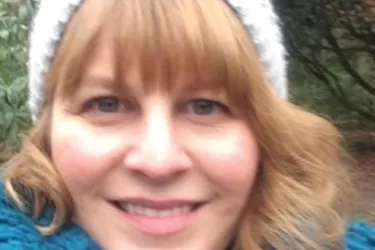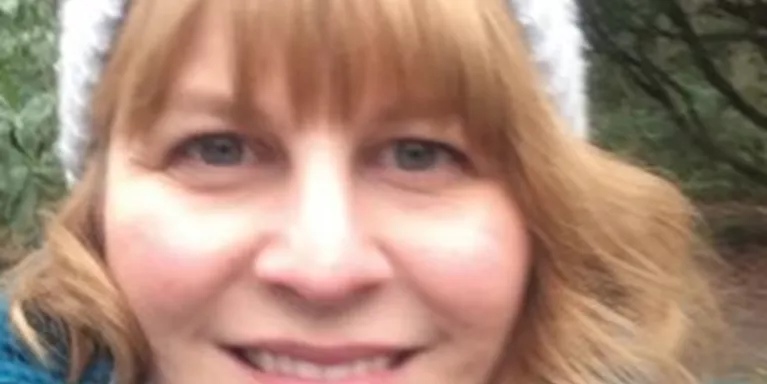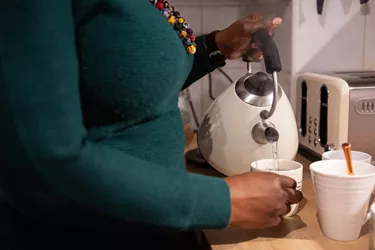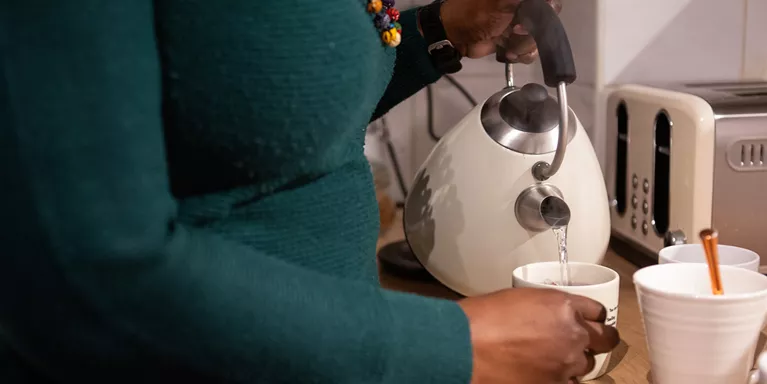Mind's new strategy & my experience of postnatal depression
Mind member Catherine blogs about her experience of postnatal depression and how her experience helped to shape our new five-year strategy 'Building on Change'.
Before my daughter came along in my mid-twenties I was confident, independent and had lots of friends. My life was fun, interesting and I was working as a freelance musician, something I had wanted to do since I was eight years old. I was part of a group that had just started performing on cruise ships and it was here that I met the birth-father of my daughter.
We embarked on a dreamy romance, full of late-night phone calls and passionate reunions and we fantasised about our future together. I was head over heels in love. And then I found out I was pregnant.
"There are so many parents out there struggling without fully understanding why."
I was terrified. Shocked. I didn't know what to do or think, but immediately felt an obsessive tie to the thing growing inside of me. I imagined it was a girl and I imagined her name was Violet. I became desperately protective of 'her'. One day, following a rushed trip to A&E, I was told that I was most likely experiencing a miscarriage. I was heartbroken to hear that I might be losing the little baby I hadn't planned but who I’d already become so attached to. I tried to remain hopeful.
I was told to return for a follow-up scan and lay on the bed with a lady's cold hands on my stomach.
"You see this little flicker here?"
I nodded.
"That's your baby's heartbeat."
I've never found the words to express how that felt.
I began to isolate myself, subconsciously protecting myself from harm or from anyone who might say anything bad about my relationship or my little baby. I retrospectively describe myself as a lioness, aggressively fighting anyone away who was capable of posing a threat to my young. I became withdrawn and edged closer to a select group of friends and family members, completely ostracising myself from everyone else.
One afternoon I called my midwife from a supermarket, I was crying, I had been crying all morning and was worried that depression was rearing its ugly head. She mentioned that it might be prenatal depression, but at my next appointment we concluded that it was nothing to worry about.
"There is NOTHING to be ashamed of."
I moved back to my family home where I had lived before university. The regression felt strange, but even more so with a baby in my tummy. My family were amazing and were so supportive at this time. I would cry and cry, I was irritable and stressed-out.
Violet arrived in a flurry of drama; after a difficult labour she was placed on my chest. I remember my first two thoughts precisely.
1) She looks like her dad.
2) I'm never doing that again.
I was unable to breastfeed and I felt like a rubbish mum. I became obsessed with trying to start a new business and found I was unable to do any of the things I wanted to do because of the screaming baby I had in tow. I started to think I was too selfish to be a mother. I concluded that I should ask my parents to adopt Violet. I would move away so that I wouldn't be there to ruin her life.
I was desperate to cling on to a part of my pre-baby life, so I started smoking again. When it started to get out of control, I went along to my local NHS Stop Smoking Service. They noticed that I was struggling and referred me to my GP. I thank God for this random intervention as I'm not sure who else would have picked up on this.
"I was over the moon to play a part in shaping this hugely important piece of work."
I was diagnosed with postnatal depression, but I believe I had previously been suffering from prenatal depression too. I was given two options: talking therapy ("but there's a six month waiting list, so not sure if you want to bother") and anti-depressants. I opted for medication because of the negative impact I was having on everyone around me.
After a high-profile case in the media involving the death of a mother and her baby I started volunteering for the PANDAS Foundation, a pre and postnatal depression advice service.
Later I became a Mind Member so I could keep up to date with mental health news. One day, I received an email from Mind asking if anyone fancied joining a sounding board they were setting up to help them develop their new five-year strategy.
I applied and I was chosen! I was over the moon to play a part in shaping this hugely important piece of work.
As part of the sounding board I spent two days talking with Mind staff about my experiences.
"There is support out there for you."
People think that women with postnatal depression only need support for the first year after they have given birth. It’s like people think that the depression should just have gone away by then, but this is not how it is for everyone. It’s something I feel really strongly about and it felt important that I was able to tell Mind this. Mind are using my experience to help them with the work they will be doing to support pregnant women and new mums as part of their new strategy. I feel chuffed to have had a direct impact on this.
It’s vital to speak out about this. There are so many parents out there struggling without fully understanding why, or how to overcome it. If we are all a bit more open about our experiences, we eradicate the stigma and pave the way for another’s recovery. There is NOTHING to be ashamed of.
If you’re reading this and suffering from a pre or postnatal depression, or any other mental health problem, please talk to someone. Open up to a friend or family member, or pay a visit to your GP. Please don't bottle it up or think it's because you're a bad parent. There is support out there for you.
'Building on Change' is the next stage in our journey towards our ultimate ambition of support and respect for everyone with a mental health problem.
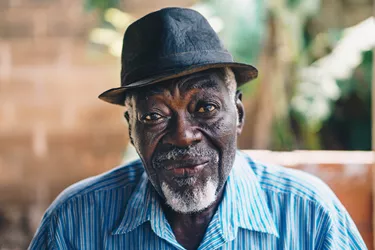

Information and support
When you’re living with a mental health problem, or supporting someone who is, having access to the right information - about a condition, treatment options, or practical issues - is vital. Visit our information pages to find out more.
Share your story with others
Blogs and stories can show that people with mental health problems are cared about, understood and listened to. We can use it to challenge the status quo and change attitudes.










